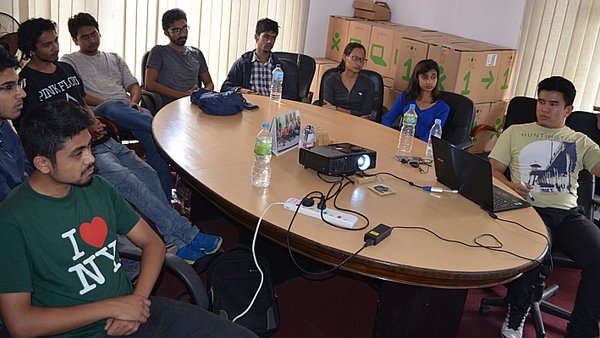OLE Nepal's pursuit of digitizing educational material up to grade 10 recently reached a major milestone as we completed the development of content for grade 8. Although this is quite the achievement, computer technology is such an ever-evolving field that the content developed for grade 2 to grade 6—using Flash—has become technologically outdated. Consequently, OLE Nepal, in our endeavor of improving education through computer science, decided to make our code base for grade 7-8, developed using HTML5, JS, and CSS, open source and involve students from various fields of computer science into our project to redevelop the content for grade 2-6.
The colleges we have currently approached and have started working with, to a certain extent, are:
We are also looking into other possible colleges to collaborate with.
So far, the response from the colleges and the number of students interested in being involved with our project has been very encouraging. Thames College, so far, has been very proactive, and we have already had multiple workshops with their students where we introduced them to various programming approaches, good programming habits, and libraries used in our project. Currently, they are busy appearing for their board exams. However, as soon as they are done with their exams, we will move into the next phase of our collaboration with them, where they will develop the content of E-Paath for grades 2-6.
On a more personal note, it was very interesting to see a good number of female students interested in our project. Female participation is something the field of Computer Science has not been able to attract for the longest time, but the current bulk of female students pursuing a degree in Computer Science/Engineering seem intent on breaking the trend of male dominance in our field and bringing some fresh perspective that can reinvigorate the existing crop of people in the technical sphere. It was very encouraging to meet the IT club of Apex College, where both the Chairperson and Secretary were female, and their group had a good bulk of female participants.
The other group that I was really impressed by were the students from Kathmandu University. These students took the initiative and approached us on their own, and their group visited our office for workshops all the way from Dhulikhel, which had me in awe because, personally, I was never as resourceful as this bunch during my college days. Their active participation and desire to better themselves by going beyond their prescribed syllabus is indicative of their proactiveness.
We intend to have at least two workshops in each college so that the experience of the students in transitioning from a college environment to the sphere of IT professionals—open source contributors—is as smooth as we can possibly make.
Finally, we at OLE Nepal are very positive about the amount of progress we have made in integrating colleges into our E-Paath 2-6 project. We feel that the approach we are taking has the potential to be a mutually beneficial venture, where the ultimate beneficiary will be the students seeking quality education in various parts of our country.
